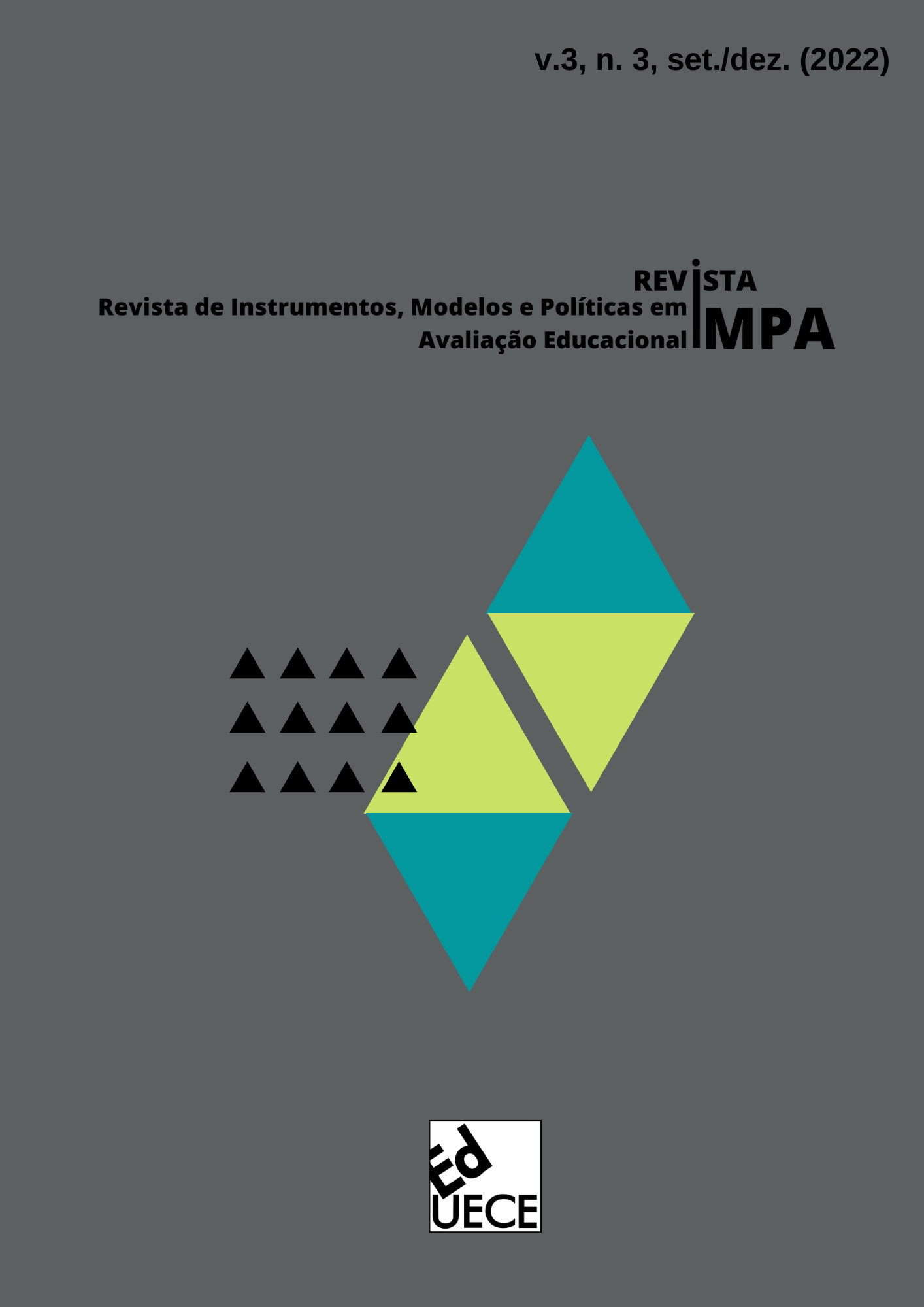A Teoria das Molduras Relacionais como suporte teórico para a interdisciplinaridade na educação
DOI:
https://doi.org/10.51281/impa.e022019Palavras-chave:
Psicologia comportamental, Teoria das molduras relacionais, Teorias da Aprendizagem, InterdisciplinaridadeResumo
Tendo em vista que as descobertas científicas provenientes dos experimentos mais modernos da psicologia comportamental têm sido subutilizadas no âmbito educacional de nosso país, o presente artigo objetiva evidenciar quais razões mantém essa realidade, e apresentar as novas abordagens das ciências comportamentais. Como exemplo, a Teoria das Molduras Relacionais que explica a formação de conexões puramente simbólicas de forma eminentemente contextual, passível de aplicação prática na conjuntura escolar por meio da interdisciplinaridade, metodologia que promove um ensino integrador e amplo, visando envolver todas as dimensões de nossa realidade no processo de ensino-aprendizagem. Assim, a partir de uma análise conceitual e de um estudo comparativo, a interdisciplinaridade e a Teoria das Molduras Relacionais são discutidas como sendo afins e convergentes no processo de construção de um ensino baseado em evidências.
Métricas
Referências
BORGES, Vavy Pacheco. O Que é História? 2. ed. São Paulo: Brasiliense, 1987.
BRASIL. Lei nº 9.394, de 20 de dezembro de 1996. Estabelece as diretrizes e bases da educação nacional. Disponível em: http://www.planalto.gov.br/ccivil_03/leis/l9394.htm Acesso em: 13 jun. 2022.
CAMPELLO, Tereza (coord.). Faces da desigualdade no Brasil: um olhar sobre os que ficam para trás, Brasília: Flacso/Clacso, 2017. DOI: https://doi.org/10.1590/0103-11042018s305
FAZENDA, I. C. A. Integração e interdisciplinaridade no ensino brasileiro: efetividade ou ideologia. 6. ed. São Paulo: Loyola Jesuítas, 2011.
GLEITMAN, Henry; REISBERG, Daniel; GROSS, James. Psicologia. 7. ed. Artmed Editora, 2003.
HENKLAIN, M. H. O.; CARMO, J. S. Contribuições da Análise do Comportamento à Educação: Um convite ao diálogo. Cadernos de Pesquisa, v. 43, p. 704-723, 2013. Disponível em: https://www.scielo.br/j/cp/a/bT6y5JYHDTjP79pmKhgbsSq/abstract/?lang=pt Acesso em: 04 abr. 2022. DOI: https://doi.org/10.1590/S0100-15742013000200016
KELLER, Fred S. Aprendizagem: teoria do reforço. São Paulo: E.P.U. 1973.
MELLO, M. H. S.; ALMEIDA, P. E. M. Teoria das Molduras Relacionais e Desfusão Cognitiva: Discussões e direções para a pesquisa experimental. Perspectivas em Análise do Comportamento, [S. l.], v. 12, n. 1, p. 105–124, 2021. Disponível em: https://revistaperspectivas.emnuvens.com.br/perspectivas/article/view/751 Acesso em: 23 maio. 2023. DOI: https://doi.org/10.18761/PAC.2021.v12.RFT.15
MORAES, Maria Cândida. O paradigma educacional emergente. 13. ed. São Paulo: Papirus, 2002.
MORAN, J. M. Ensino e aprendizagem inovadores com tecnologias audiovisuais e telemáticas. In: MASETTO, M. T.; BEHRENS, M. A. Novas tecnologias e mediação pedagógica. 13. ed. Campinas, SP: Papirus, 2007.
PEREZ, William F. et al. Introdução à Teoria das Molduras Relacionais (Relational Frame Theory): principais conceitos, achados experimentais e possibilidades de aplicação. Perspectivas em análise do comportamento, v. 4, n. 1, p. 33-51, 2013. Disponível em: https://www.revistaperspectivas.org/perspectivas/article/view/105 Acesso em: 06 abr. 2022. DOI: https://doi.org/10.18761/perspectivas.v4i1.105
ROSE, J. C. et al. Ensino de leitura e escrita: exclusão e equivalência de estímulos. In. MELO, Raquel Maria; ALBUQUERQUE, Alessandra Rocha (Org.). Contribuições da Análise do Comportamento para a Compreensão da Leitura e Escrita: Investigações Empíricas e Diálogos com outras Áreas de Conhecimento. 2. ed. São Paulo: Cultura Acadêmica, 2021. p. 27 - 57 DOI: https://doi.org/10.36311/2021.978-65-5954-075-4.p21-62
ROSE, J. C; RABELO, L. Z. Teoria das molduras relacionais e possíveis aplicações à educação. Revista de Deficiência Intelectual, v.3, p. 10-15, 2012. Disponível em: https://www.researchgate.net/publication/281862102 Acesso em: 04 abr. 2022.
SAVIANI, Dermeval. Escola e Democracia. 42. ed. Campinas, SP: Autores Associados, 2012.
SKINNER, B. F. Ciência e comportamento humano. 10. ed. São Paulo, SP: Martins Fontes, 1999.
SIDMAN, M.; TAILBY, W. (Conditional discriminations vs. matching-to-sample: an expansion of the testing paradigm. Journal of the Experimental Analysis of Behavior, v.37, n.1, p.5-22, 1982. Disponível em: https://onlinelibrary.wiley.com/doi/abs/10.1901/jeab.1982.37-5 Acesso em: 16 abr. 2022. DOI: https://doi.org/10.1901/jeab.1982.37-5
THIESEN, Juares da Silva. A interdisciplinaridade como um movimento articulador no processo ensino-aprendizagem. Revista Brasileira de Educação, v. 13 n. 39, p. 545 - 554, 2008. Disponível em: https://www.scielo.br/j/rbedu/a/swDcnzst9SVpJvpx6tGYmFr/abstract/?lang=pt Acesso em: 05 jun. 2022. DOI: https://doi.org/10.1590/S1413-24782008000300010




